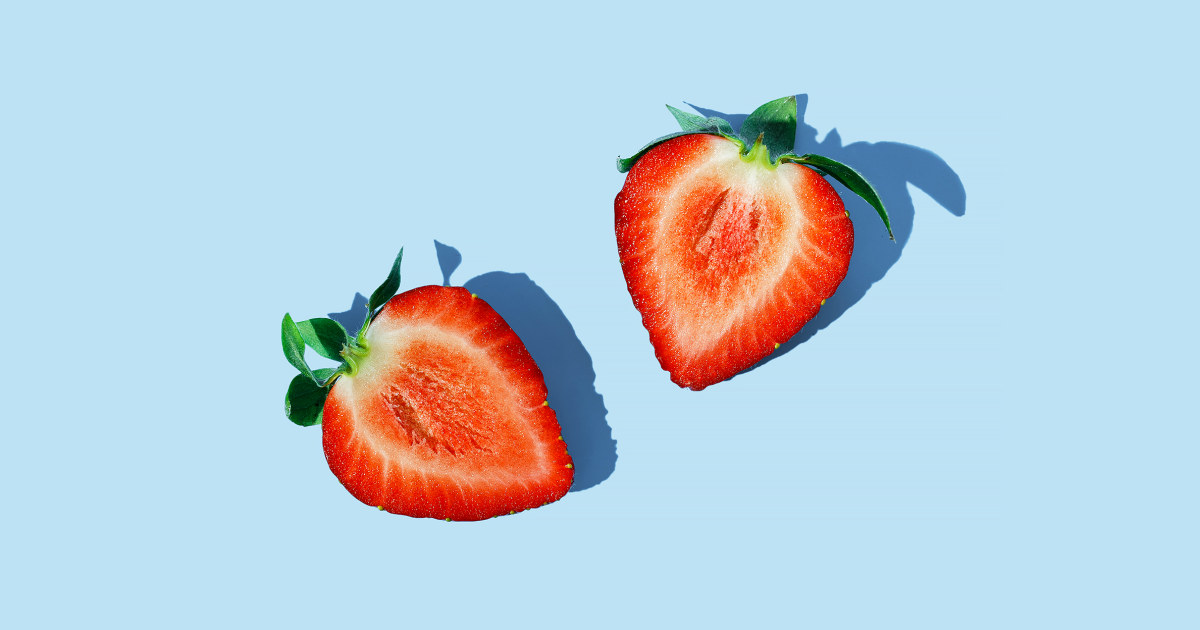Fruit makes summer sweeter, with berries, cherries and peaches just the start of perfectly ripe options tempting with their taste, aroma, vibrant color and juiciness.
“Summer is peak season for so many fruits, which means they’re at their most flavorful, most nutritious and often most affordable,” Samantha Cassetty, a registered dietitian in New York and co-author of “Sugar Shock,” tells TODAY.com.
She encourages people to take advantage of this abundance by adding berries to yogurt bowls and overnight oats, snacking on fresh fruit or grilling sturdier picks like peaches and nectarines.
“Summer is a fantastic time to enjoy fruit,” adds Patricia Bannan, a registered dietitian in Los Angeles and author of “From Burnout to Balance.”
“It’s a great time to explore local farmers’ markets or try fruits you might not usually pick up.”
Fruit desserts like blueberry pie, strawberry ice cream and peach cobbler are also irresistible. Both dietitians recommend keeping portions in mind, and eating lighter and more nutritious versions of those treats.
“Flip the ratio,” Bannan advises. Instead of a big scoop of ice cream with a few berries on top, enjoy a big bowl of berries with a spoonful of ice cream or a dollop of whipped cream, she says.
Try a “faux cobbler” by warming fruit and topping it with low-sugar granola and a spoonful of vanilla yogurt, Cassetty recommends.
“Fruity desserts are a great way to help meet your daily fruit needs while also getting fiber, antioxidants and anti-inflammatory nutrients,” she says.
When it comes to drinkable fruit, go easy on fruit slushies or juices since they’re often low in fiber, Cassetty notes. But healthy smoothies can be a good option when they’re made with whole fruit, protein and healthy fat like Greek yogurt and a nut butter, both dietitians say.
Whole fruit is always the gold standard because it provides the full package of fiber and nutrients, they note.
Here are nine of the healthiest summer fruits:
Watermelon
Living up to its name, watermelon is made up of 92% water.
It’s “ultra-hydrating and packed with antioxidants like lycopene,” Cassetty says.
Lycopene is linked to heart health, skin protection and reduced inflammation, Bannan notes.
Watermelon also contains l-citrulline, a compound that helps relax blood vessels and may support cardiovascular functioning and exercise endurance, Cassetty adds.
One of her favorite summer snacks on a hot afternoon is a refreshing, sweet-savory feta and watermelon salad.
Enjoy watermelon fresh off the rind, blended into smoothies or frozen into popsicles for a fun, healthy treat, Bannan says.
Blueberries
Cassetty calls blueberries “a standout for their brain-boosting benefits,” pointing to research that links blueberry consumption to improved memory and cognitive function.
The benefits appear to come from anthocyanins, natural pigments that make these berries blue. They’re also powerful compounds that help protect the brain, she says.
Blueberries are Cassetty’s top pick for the healthiest fruit overall.
Raspberries
All types of berries make the list of the fruits with the most antioxidants.
But raspberries deliver a big bonus: lots of fiber. One cup provides about 8 grams, double the amount found in blueberries.
“Raspberries are among the highest fiber fruits out there, which is important since most Americans fall short on fiber,” Cassetty says.
The fiber in fruit also helps people feel full longer, which can help with weight loss.
Strawberries
Bannan recommends enjoying them fresh, tossed into salads, layered into parfaits or infused into sparkling water.
“Bursting with vitamin C, fiber and antioxidants, strawberries support immune health, heart health and skin vitality,” Bannan notes.
“They’re naturally sweet yet low in calories, making them a smart swap for added sugars in snacks and desserts.”
Studies have linked strawberries to improvements in markers for heart disease, Cassetty adds.
Blackberries
Like blueberries, the deep dark color of blackberries signals the presence of anthocyanins, those beneficial plant compounds that act like antioxidants.
Blackberries also make the list of fruits with the most protein, with 2 grams of protein per one cup of raw fruit.
Sweet Cherries
This pretty summer fruit contains anti-inflammatory compounds and melatonin that may help with muscle recovery and sleep, Cassetty notes.
She uses a cherry pitter so she can easily toss cherries into grain bowls.
“I also love replacing the pit with a chocolate chip or two,” she says.
TODAY nutrition editor Natalie Rizzo likes incorporating cherries into her smoothies to add natural sweetness and fight inflammation.
Peaches
With their juicy orange flesh signaling lots of beta-carotene, peaches make the list of fruits with the most vitamin A.
They’re also rich in vitamin C and potassium, Bannan says. Tasty on their own, peaches also make a great topping for Greek yogurt, cottage cheese or overnight oats.
“They’re perfect fresh or grilled, and pair well with both sweet and savory summer dishes,” she adds.
Nectarines have a similar taste and almost identical nutritional benefits without the fuzzy skin.
Mango
In season during late spring and summer, mangoes deliver vitamin C, vitamin A and polyphenols — beneficial compounds found in plants, Bannan says.
Mangoes are also high in soluble fiber, which can help lower cholesterol, and are among fruits with the most sugar for healthy energy.
“Their natural sweetness makes them a great option for adding flavor to smoothies, salads, or frozen treats without added sugars,” she notes.
Cantaloupe
Another vitamin A star, cantaloupe also contains lutein and zeaxanthin — nutrients important for healthy vision.
It’s delicious in fruit salads, smoothies and desserts, or a sweet-savory snack when paired with prosciutto.
